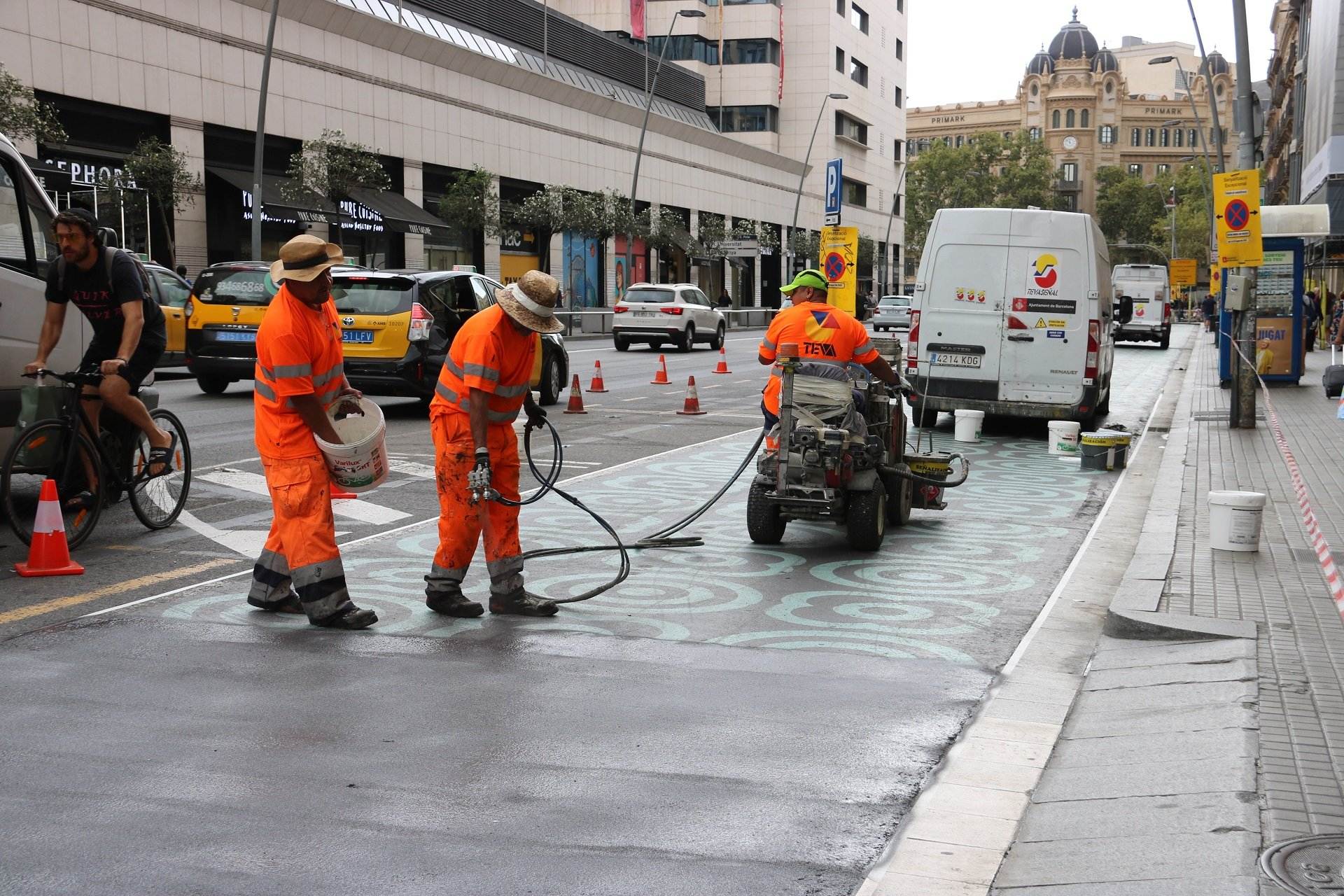The spokesperson for Barcelona en Comú (BComú), Janet Sanz, has charged the city government led by Jaume Collboni with "dismantling" the planning changes that the previous council had made in Carrer Pelai to pacify it, after work began this Monday to eliminate the reformed space and turn it into 64 parking spaces for motorbikes, 72 for bicycles and 20 for loading and unloading. In an interview this Tuesday with the radio programme El Món on RAC1, Sanz, who during the term of the former mayor of Barcelona, Ada Colau, was deputy mayor in charge of urban planning, considers that this measure is "a backward move" for the city model and doesn't think it makes sense "beyond the gestures" of the Catalan Socialist (PSC) municipal government. "They have no direction or city model," lamented Sanz, who asserted that in the two streets affected, Pelai and Fontanella, a project had been agreed upon with retailers and residents that included a segregated bike lane in a key street joining the Eixample and Ciutat Vella districts. Nevertheless, the so-called "tactical" urban alterations made under the Ada Colau administration were controversial with many Barcelona residents - and particularly, vehicle drivers.
Collboni eliminates "tactical" changes in C. Pelai
The alterations to this area of the city, which started this Monday, will last a week and will affect the seaward side of the busy shopping street. The renovations will not change the current traffic lanes or affect the sidewalk, but rather will re-dedicate the space between them, part of which had been painted and reserved for pedestrians, although, according to the new council, it was not used very much. This area will now be dedicated to a series of uses: parking of bikes and motorbikes, loading and unloading of vehicles, and rubbish and recycling containers. The council argues that the works respond to the demands for more parking spaces for bicycles and motorcycles in the city centre and, at the same time, makes it possible to increase loading and unloading spaces on one of the most important retail streets in Barcelona.


The section located between Plaça Universitat and Carrer Balmes will include a single lane dedicated to loading and unloading spaces, motorbike parking and rubbish containers; while beyond this, between Balmes and Plaça Catalunya, a multi-layered lane of services will be set up. In fact, in this section of the street, it will be divided into three different strips along its length: firstly, the loading and unloading spaces in the outer part, closest to traffic; on the innermost part, new bicycle and motorcycle parking spaces in the strip next to the sidewalk. And in between them, to allow bike and motorbike users to access these parks, a narrow access lane will be created. The works will not affect the traffic lanes, nor modify the space for pedestrians on the sidewalk. All this transformation is part of the Endreça Plan that Laia Bonet and the councillor for law and order, Albert Batlle, presented on July 26th to modify the tactical urban planning, one of the controversial measures of the Ada Colau's BComú city administration.


